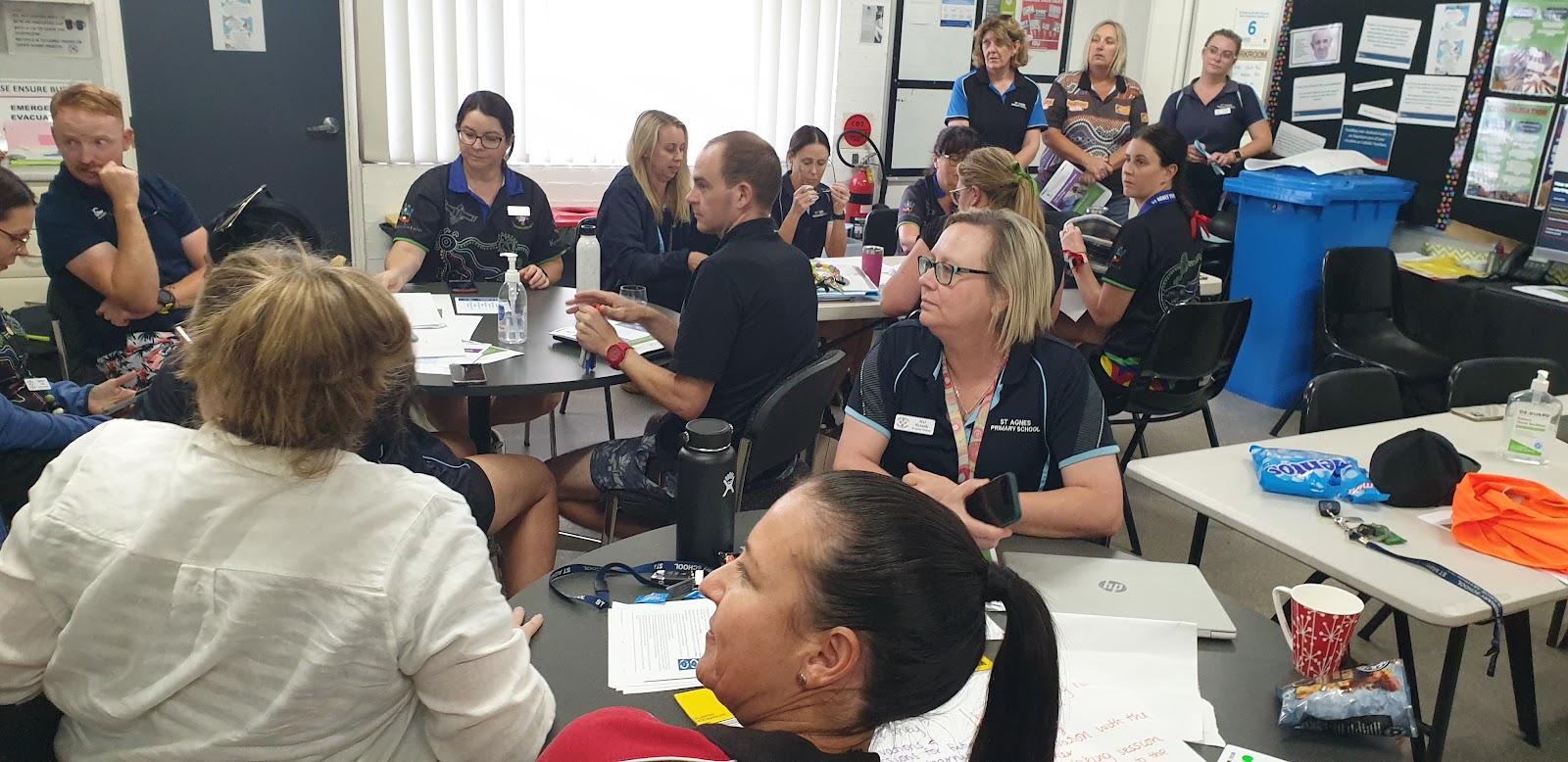Professional Learning with Lyn
The team traveled to Kempsey to undertake a two-day workshop with Lyn Sharratt (zoomed from the States) and other schools in the Diocese engaged in the partnership. Throughout the two days the pre-conditions to school improvement were explored: the need to talk about practice, share craft and co-learn from knowledgeable others through walks and talks and the the importance of celebrating success of one another. Without this culture we recognized that no sustained change is possible. As a team, these 'conditions' resonated deeply with us and what we currently do. But the question became apparent, do we do this as well as we could?
Key Learnings #1
The system alignment was becoming clear as we engaged with the learning on Day One. By reducing our priorities and adopting the mantra 'focus, align, feedback at every level' we, as a collective, can ensure student learning across every school in our Diocese. Strategic leadership in each school would bring about transformative change, strengthen the culture of learning and create 'laser like focus' on student achievement. We explored how this leadership builds capacity of effective multi-layered interventions, parental/community involvement and the necessary instruction of comprehension in Literacy and conceptual understanding in Mathematics in an effort to build student's ability to understand, think critically, apply learning and communicate effectively in an ever-changing world. We reflected.
What were we doing already that was making a difference to our students?
By examining case studies of other schools we started to unpack what were high impact schools doing that low impact schools were not?
What, how, why and who in the school ensured growth?
Were we precise with what we doing and why we were doing it?
Key Learnings #2
On the second day our conversation focused on putting faces on the data in order to deepen our high-impact practices. We trialed the development of our own data wall and realized as a result of this process the importance of co-constructing (and therefore co-owning) the wall. We answered questions such as:
What data is the data we need and what will help us 'pinpoint' what is needed to be done?
What data is the most meaningful, purposeful and authentic?
Why do we put faces on the data? Is it to inform instruction, to build ownership, for assessment and human-emotional connection between teacher and student?
How can this data be used to build intentional teaching, collaborative vision, developing consensus on how to move forward, where to distribute support/resources/expertise, etc.?
Final Thoughts
Throughout the workshop, as we engaged with the parameters, we utilized a variety of pedagogical tools/methods/strategies that enabled us to deepen our understanding and connection with the content. As a team we decided these will be replicated with staff in an effort to help them engage as deeply. They will also be models of pedagogical practice that teachers could perhaps utilize themselves when having their own students engage with unfamiliar content.









Comments
Post a Comment